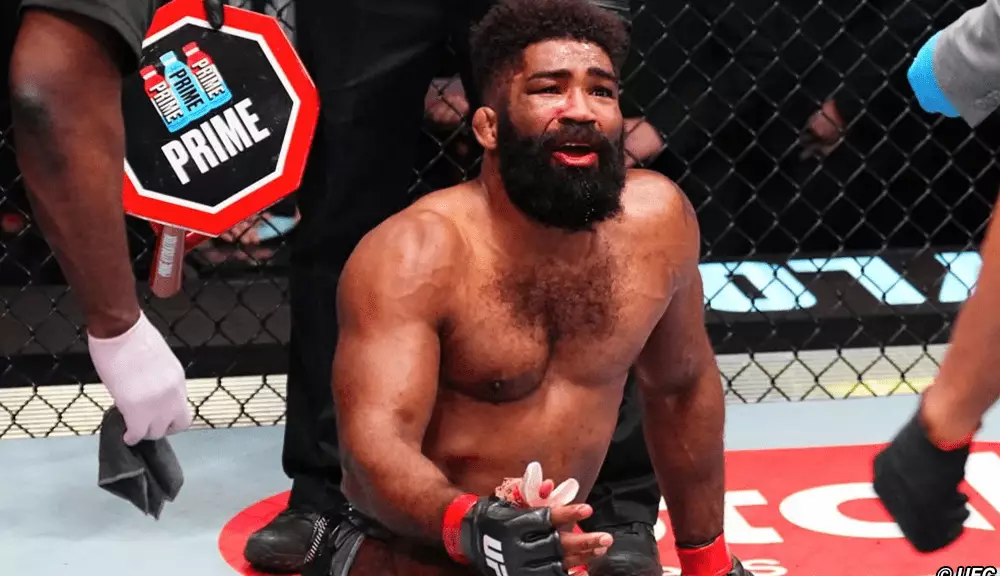In mixed martial arts (MMA), the role of the referee is paramount. They are tasked with ensuring not only fair competition but also the safety of the fighters. The recent stoppage of Chris Curtis during his bout against Roman Kopylov at UFC Fight Night 249 has sparked considerable debate. Curtis’s discontent with the referee’s decision raises questions about the thresholds for stopping fights, especially in close contests where both fighters exhibit resilience.
Curtis, who boasts a record of 31-12 MMA and 5-4 UFC, experienced an emotionally charged moment as the fight concluded. He felt his ability to defend himself was compromised by the referee’s decision rather than by direct incapacitation. His protests were fueled by what he perceived as an early stoppage, particularly given that the fight was nearing its conclusion. Curtis’s reaction brings to the forefront the mental and emotional stakes involved in combat sports. Fighters dedicate immense time and resources to prepare for bouts, making any perceived injustice difficult to swallow.
John McCarthy, a seasoned figure in the MMA world and former referee, weighed in on the stoppage during his “Weighing-In” podcast. His analysis focused on the moment leading up to the stoppage—highlighting that while Kopylov was dominating in the final round, Curtis had not completely lost the ability to defend himself. McCarthy argues that a fight should only be stopped when a fighter is incapable of protecting themselves effectively, an evaluation that often requires split-second judgment.
The essential point that McCarthy raises is about the context of momentum in a fight. If a referee interrupts a bout due to a momentary lapse or after a fighter is struck but is still conscious and aware, it can undermine the fighter’s agency. In this case, Kopylov’s action of walking away from Curtis might have influenced the referee’s perception of the threat level, indicating that further action was unnecessary.
Roman Kopylov defended the referee’s decision in the aftermath, indicating that he believed the stoppage was justified based on Curtis’s condition. This illustrates the divide often seen within combat sports where the fighters and the officials may interpret fight scenarios differently. Kopylov’s view underscores the instinctive mentality of a fighter who continues to assess his opponent even after achieving a technical advantage.
The debate surrounding the stoppage serves as a reminder of the complexities inherent in refereeing MMA. Striking the right balance between protecting fighters and allowing them the opportunity to compete is a fine line to walk. Curtis’s feelings of injustice are valid, and McCarthy’s insights add a deeper layer of understanding to the decision-making process. This incident not only impacts the fighters involved but also contributes to the broader discourse on safety and officiating standards in mixed martial arts. As the sport evolves, ensuring clarity in referee guidelines will remain crucial for fostering fairness and maintaining fighter morale.

